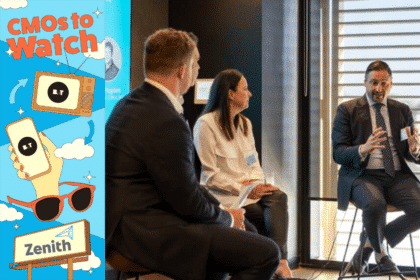In times of economic uncertainty, rising consumer expectations, and growing environmental concerns, purpose-driven marketing has emerged as a beacon of hope, shifting from a “nice-to-have” to an essential business strategy.
One of the most inspiring takeaways from the CMO Power List, presented this year by atn, is how Australia’s top marketers are weaving sustainability, social responsibility, and ethical practices into the very fabric of their brand strategies. These efforts are not just about enhancing reputation—they are about building lasting success and earning genuine customer loyalty.
From L’Oréal’s steadfast sustainability commitments to Suncorp’s disaster resilience programs, these leaders are demonstrating that marketing is no longer merely about telling stories. It’s about creating real, meaningful change in a world that needs it more than ever.
Sustainability: From Buzzword to Business Imperative
Gone are the days when sustainability was treated as a side project or an afterthought. Today, Australia’s leading brands recognise that customers expect proof, not just promises when it comes to sustainable practices.
L’Oréal Australia & New Zealand’s Georgia Hack emphasised that sustainability is no longer a brand-by-brand initiative but a group-wide philosophy embedded across the business.

Hack is particularly proud of L’Oréal’s commitment to sustainability, guided by its global ‘L’Oréal for the Future’ program. Locally, this has translated into initiatives such as Garnier’s partnership with the Great Barrier Reef Foundation and efforts within the CDMO team to reduce media carbon emissions through cutting-edge technology.
“When it comes to sustainability, all of our brands do subscribe to the same sustainable philosophy, which is ensuring that we operate within the limits of the planet, working with science-based targets, empowering our business ecosystem and contributing to solving the challenges of the world together,” she said.
“We do that as a collective, versus at an individual level”.
This integrated approach ensures that sustainability is not siloed but rather a driving force behind L’Oréal’s decision-making.
With growing scrutiny on supermarkets over pricing, ALDI Australia’s CMO Jenny Melhuish made clear that the cost of living crisis and soaring inflation did not come without its challenges. Particularly as a greater spotlight had been placed on the supermarket category after the ACCC alleged rivals Woolworths and Coles had misled customers about pricing.

Melhuish said the economic climate and scrutiny over the supermarket category led ALDI to “sense check and double down on what was important to shoppers”.
ALDI took on the challenge, knowing that its purpose of ‘helping everyday Australians live richer lives for less’ and values of ‘simplicity, consistency and responsibility’ needed to underpin how the business operated and went to market.
“We worked hard as a business to ensure we found authentic ways to elevate our promise to Australians,” said Melhuish.
“Towards the end of 2024, our data shows we have over four per cent more households shopping with us, as customers seek the confidence ALDI gives when it comes to consistent, low-priced, high-quality products”.
By ensuring that sustainability efforts align with consumer priorities—affordable, high-quality products—ALDI is proving that brands don’t need to choose between profitability and responsibility.
Social Responsibility & Brand Purpose: More Than Just a Marketing Campaign
Beyond sustainability, brands are taking an active role in addressing social issues, whether it’s through community engagement, disaster resilience, or economic support programs.
Insurance is not traditionally an industry associated with social impact, but Michelle Klein, CMO of IAG, is redefining how brands can elevate customer expectations beyond transactions. “Every time you do something that you think meets a customer’s expectations, another business or industry ups the ante. For an insurance company, we need to keep ahead of customers’ expectations; that’s the vision.”

In a world that is changing more rapidly than ever, whether it be because of climate change, demographic shifts, continued economic headwinds or anything else, brands should and need to show up to help customers navigate an uncertain world.
“We need to do more, writ large, across our industries to support people who are experiencing vulnerability. That vulnerability can take different forms, for example, domestic violence and financial abuse affects all our industries… When we come together and talk around the same table, it’s going to be better for Australians and better for society,” Klein said.
As climate change intensifies natural disasters, Suncorp’s CMO Mim Haysom has also led the charge in positioning the insurance company as a leader in disaster resilience.

“We’re making communities and customers more resilient in really different ways, through research and the learnings that ‘One House’ contributed to, but also using technology in really different ways,” she said.
“We’ve built our Disaster Management Centre at our HQ in Brisbane with a nine-metre-long screen that brings together geospatial information, satellite and aerial imagery and more to understand the impending weather. We then feed that to our disaster management teams to get them on the ground to pre-empt it, communicate to customers and help them manage what might be coming. Then it enables us to mobilise our support teams on the ground where they’re needed faster. We’ve just built five mobile disaster management hubs where customers can speak to us face-to-face”.
This proactive approach to climate risk goes beyond advertising—it reinforces Suncorp’s role as a protector of communities, positioning the brand as a trusted partner in times of crisis.
The Bottom Line: Purpose is the New Competitive Advantage
B&T’s 2025 CMO Power List proves that purpose-driven marketing isn’t just a trend—it’s the foundation of modern brand leadership. Today’s top CMOs understand that customers want brands that stand for something real, whether that’s sustainability, social good or community impact.
By embedding purpose into business strategy, these marketers are not only enhancing brand loyalty but also future-proofing their organisations for long-term success.
As consumer expectations continue to rise, one thing is clear—the brands that stand for something meaningful will be the ones that stand out.








